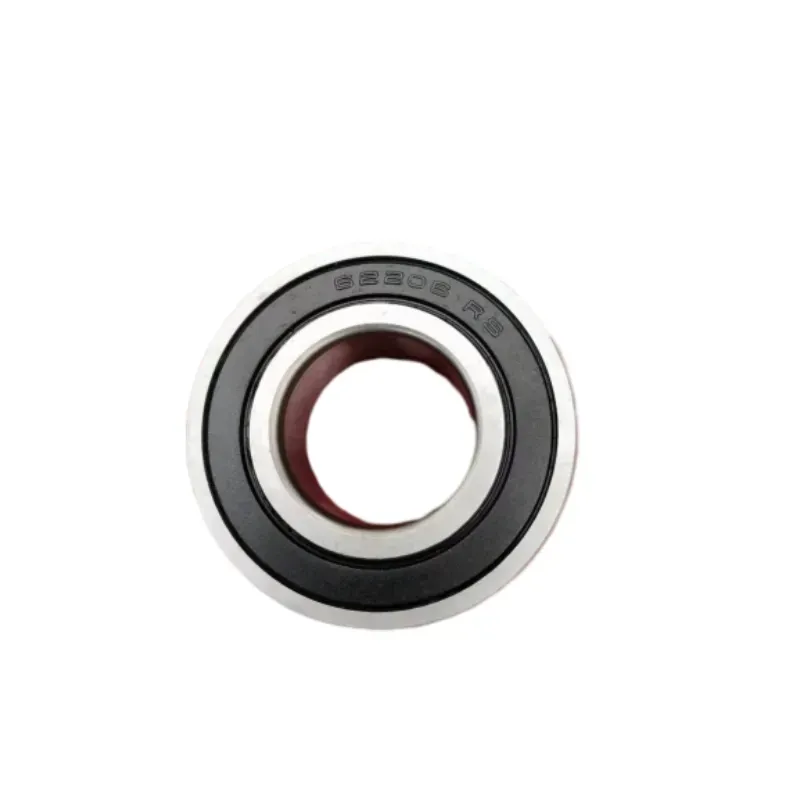
Jan . 24, 2025 14:49 Back to list
Right Bearings for Your Machinery: A Comprehensive Guide
Bearings are critical components that ensure the smooth operation of various machinery, from industrial equipment to agricultural tools. Selecting the appropriate bearing, whether for a ball mill bearing, machinery bearings, concrete mixer bearings, or farm equipment bearings, involves careful consideration of several factors, including machinery type, load conditions, and environmental challenges.

This guide provides practical advice to help you choose the ideal bearings for your specific needs.
Understand the Machinery of Bearings and Its Requirements
The first step in selecting the right bearing is to understand the type of machinery it will support. Each machine has unique demands based on its function, speed, and operational requirements.
Examples:
-
Ball Mill Bearings: Designed for heavy-duty loads and low rotational speeds, common in grinding and milling applications.
-
Concrete Mixer Bearings: Require durability to handle abrasive particles and irregular loads during mixing operations.
-
Farm Equipment Bearings: Used in tractors and harvesters, they need to withstand variable loads and outdoor conditions.
-
Machinery Bearings: Versatile bearings for general-purpose machinery, balancing speed and load capacities.
Knowing the specific demands of your machinery helps narrow down the type of bearing required.
Consider Load Conditions of Machinery Bearings
Bearings are designed to handle different types of loads, including radial, axial, or a combination of both. Understanding the load conditions is crucial to ensure optimal performance and longevity.
Types of loads:
-
Radial Load: Force perpendicular to the shaft, common in rotating machinery like ball mill bearings.
-
Axial Load: Force parallel to the shaft, often encountered in vertical shafts or machinery like grain conveyors.
-
Combined Load: A mix of radial and axial forces, typical in farm equipment and concrete mixers.
Bearing selection tip:
-
Useroller bearings for heavy radial loads.
-
Opt for angular contact ball bearingswhen axial loads are present.
-
Consider tapered roller bearingsfor machines experiencing combined loads.
Proper load assessment ensures the bearing can handle operational stresses without premature failure.
Machinery Bearings: Evaluate Environmental Factors
The environment in which the bearing operates significantly impacts its performance and longevity. Factors like temperature, humidity, contamination, and vibration must be accounted for during selection.
Key environmental considerations:
-
Contamination: For dusty or abrasive environments like concrete mixers, choose bearings with sealed or shielded designs to prevent debris ingress.
-
Temperature: High-temperature applications, such as ball mills, may require bearings with heat-resistant materials or lubricants.
-
Moisture and Corrosion: Outdoor machinery, like farm equipment, benefits from corrosion-resistant bearings, such as those made from stainless steel or with anti-corrosion coatings.
-
Vibration: In vibrating equipment or machinery with uneven loads, use bearings with high shock resistance and damping capabilities.
Choosing bearings tailored to environmental challenges enhances durability and reliability.
Bearings: Assess Operational Speed and Precision Needs
Different machinery operates at varying speeds, and the selected bearings must match these operational requirements to prevent overheating or premature wear.
Speed considerations:
-
Low-Speed Applications: Bearings for ball millsor slow-moving farm equipment focus on load-bearing capacity over speed.
-
High-Speed Applications: Precision bearings, such as those used in high-speed machinery, prioritize low friction and heat dissipation.
Precision needs:
-
Machines requiring exact movement, such as automated farming tools, benefit from high-precision bearings with tight tolerances.
-
General-purpose machinery can use standard bearings with broader tolerances.
Aligning bearing specifications with speed and precision requirements ensures efficient and trouble-free operation.
Choose Bearings from Reliable Suppliers
The quality of the bearing is as important as its specifications. Partnering with reliable suppliers ensures you receive bearings that meet industry standards and provide consistent performance.
Factors to consider when choosing a supplier:
-
Reputation: Look for suppliers known for high-quality machinery bearingsand excellent customer support.
-
Custom Solutions: Suppliers offering tailored options for specific needs, such as farm equipment bearings, can enhance compatibility and efficiency.
-
Availability: Ensure the supplier can meet your demand promptly, especially for replacement parts.
Selecting a trusted supplier guarantees the longevity and performance of your machinery.
Selecting the right bearings, whether for ball mill bearings, concrete mixer bearings, or farm equipment bearings, requires careful analysis of machinery type, load conditions, environmental factors, and operational speed. Understanding these elements ensures that your machinery operates efficiently, with reduced maintenance costs and extended service life.
Partner with reliable suppliers and make informed choices to maximize the performance and durability of your equipment!
Latest news
-
Comprehensive Guide to 6305 2rsr Bearings – Specs, Uses & Vendors
NewsNov.24,2025
-
In-Depth Guide to 6003z Bearing Dimensions: Specs, Applications & Vendors
NewsNov.23,2025
-
Understanding the 6201 Z Bearing - Specifications, Applications, & Future Trends
NewsNov.23,2025
-
Everything You Need to Know About 6001 C3 Bearing – Specs, Uses, and Advantages
NewsNov.22,2025
-
6208 zz Bearing – Key Technical Insights, Applications & Vendor Comparison
NewsNov.22,2025
-
Everything You Need to Know About the 61906 Bearing | Features, Applications & Vendors
NewsNov.22,2025
